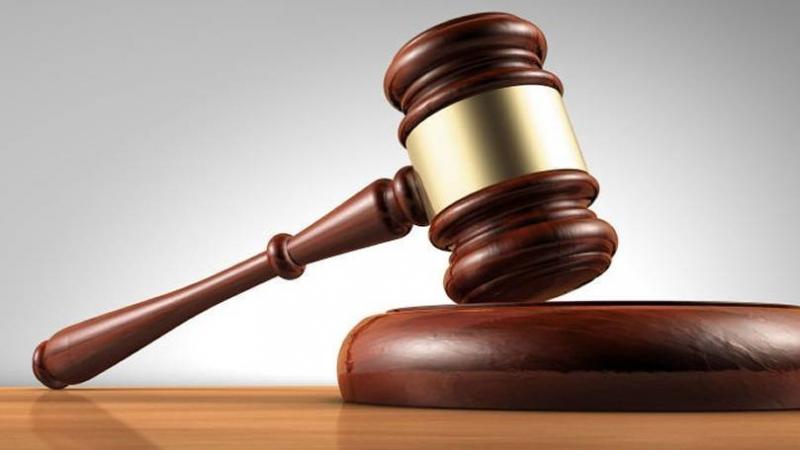In recent hours, there has been a movement at the courthouse from the Bar Association towards the Minister of Justice in the caretaker government, Henry Khoury, and the President of the Supreme Judicial Council, Judge Suhail Aboud. The aim is to end the near-total judicial sit-in that has continued for more than three months. This situation arose due to the legitimate social demands of judges and, on the other hand, the repercussions it has had on the work at courthouses, the delay in processing cases, and the harm to lawyers, many of whom have been forced to stop practicing their profession during this economic crisis, leading some to close their offices or travel.
The impetus for this movement, which has raised significant concerns, is that "the reasons that prompted this sit-in have reached their conclusions," according to the President of the Beirut Bar Association, Nader Ksebar, who stated to "An-Nahar": "This issue, however one looks at it, has become a matter of conclusion." Ksebar informed Minister Khoury and Judge Aboud during the recent meetings that the judicial sit-in has reached a level of profound disgust among lawyers, who can no longer endure it professionally and socially. He emphasized that as the head of the lawyers, he and the lawyers no longer accept its continuation and the ongoing disruption of judicial work, stating that "lawyers are dying from hunger. Our silence has lasted too long. We refrained from speaking earlier to avoid our words being interpreted as a contradiction to judges' demands."
He added: "The state has approved a threefold salary increase for judges, and the Judges' Cooperative Fund will provide a monthly loan of 20 billion, to be paid over five months. The Bar Association has not hesitated to provide necessities, including fuel for Beirut's judiciary, and we will take similar steps to regional courthouses. We have taken on the issue of cleaning, and the Bar Association annually provides elevator maintenance. The issue of power outages falls on the state, similar to all other state institutions. My words are not meant as a claim, as it is our duty to support each other in these difficult circumstances as two wings of justice."
In principle, the head of the Bar Association does not favor judges stopping their duties regardless of the circumstances. He believes that the sit-in can "ruin people's lives, not just lawyers'. Law enforcement continued performing their duties in the direst war conditions, and so did the judiciary, while citizens maintained ethical conduct amongst themselves. But today, when judges go on strike, it results in paralysis across the country, halting all dealings and judicial files, whether related to detainees, convicted individuals, real estate matters, or inheritance issues. All authority rests with the judiciary. Its decision can call upon the highest officials in power. It has absolute authority to summon any citizen; if the latter resists, a warrant can be issued for their arrest. Even default judgments can halt the movement of any accused. Judges do not have the right to cease performing their duties, and the principle of sit-ins is something I will never accept. What is happening is a refusal to establish justice. We have remained silent for too long and will not remain silent any longer."
He warned that "the sit-in will end next week, otherwise, we will seek the dismissal of any judge who refuses to resume their work." In response to a question, he stated, "Monthly expenses burden every citizen, not just judges. What if funds for transportation become available? Would all other obligations be met? I oppose the principle of sit-ins. Judges should not be allowed to go on strike under any circumstances. They are the last ones who should resort to such a decision. If a law enforcement officer were to go on strike, it would still be manageable. Yet, how can law enforcement detain offenders and leave them free due to a judicial sit-in?"
The sit-in must be stopped immediately, or else what? "We have no option left, and one of the options is to approach the United Nations and other countries and request the dismissal of the recalcitrant judge and appoint a replacement. The answer to this request cannot be that justice is suspended because it is already on hold due to the sit-in."
The head of the Bar Association argues that beyond the financial crisis involved in the sit-in, "there are judges who are indeed suffering from hardships; however, I have a different perspective, which is that part of this sit-in is aimed at preventing progress on pending files, such as the port explosion case and the files concerning the depositors' funds in banks."
Ksebar revealed that some judges in the fields of criminal and urgent matters have ended their sit-in in Beirut, Mount Lebanon, Baalbek, and Zahle, noting that the Judiciary Council will hold a meeting this coming Monday at the invitation of the Council's President, which will issue a statement calling for judges to end the sit-in permanently to build on this crucial matter. "We have reached our limit on this issue. I will not respond to anyone anymore, no matter how many comments there are on WhatsApp or elsewhere."




